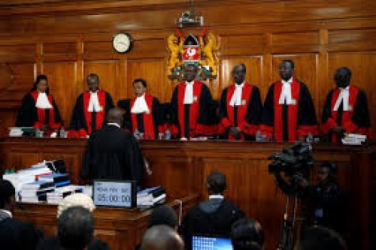×
The Standard e-Paper
Stay Informed, Even Offline

Caledonia along State House road, IKM Centre along Ngong Road and Mirage Plaza in Westlands, Nairobi, are the nerve centres for the legal teams working overnight on behalf of parties in the presidential election petition.
Lawyers for President Kenyatta, the electoral agency and Opposition leader Raila Odinga have set up bases there to put together their responses to two petitions challenging the October 26 presidential election to beat Sunday's Supreme Court deadline.